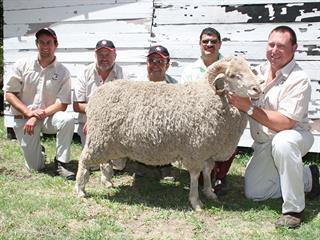After years of propaganda by scientists, most people now accept everything they tell us about global warming as true. It’s accepted that unless we do something soon, the world will be like burnt toast by 2100. In 2007 and 2008, the global energy crisis with oil prices that increased to US0 and more, highlighted the problems of a world that consumes more fuel than it produces.
Former vice-president Al Gore’s movie and the report by British economist Sir Martin Stern have reinforced this. Doubters who point out that the observed increase in temperatures in some areas may be caused by local conditions like more tarred surfaces, that there’s no proof that the current warming cycle will continue indefinitely and that in climatic terms, 100 years is regarded as a short period, are lucky that the days of the Inquisition are gone, otherwise they would have been burned at the stake. Responses to global warming While one may doubt the scientific veracity of global warming, consumers and governments worldwide have accepted it.
Most countries are signatories to the Kyoto Protocol that promises to reduce the amount of carbon dioxide released into the atmosphere in future. Consumers are sensitive about the environment and retailers use these concerns as a selling point. Any farmer who can claim that his goods are produced in a carbon-neutral operation, will be able to claim a premium in the affluent markets of the world.
The sharp increases in fuel and fertiliser prices have forced farmers to reconsider their methods. Biological farming, which uses farm waste to produce compost and carries out minimum tillage to limit carbon losses, makes good economical sense. Farmers now realise that soil fertility is much more than adding the correct amount of N, P and K and maybe some lime.
European farmers are used to government support. This support has shifted from being production-linked to so-called decoupled subsidies – subsidies that are not linked to the level of production. countries are now paying farmers who produce environmentally friendly products and sustainable energy. In response, farmers are cashing in on this by becoming energy farmers. he Schwarten family in northwest Germany is a good example. They milk 300 cows with five Lely milking robots. Their average production is 8 000â„“. Since 2004, they have put up a biogas plant that utilises all the manure as well as the waste silage.
The two biogas digesters produce gas that’s used to run a 1 200kW generating plant. In addition to a subsidy to establish the biogas plant, the EU subsidised all the electricity produced from biogas with about R4/kWh. All energy not used on the farm is automatically passed into the national electricity net. he heat generated in the process is also captured and used on the farm and also with a subsidy from the EU. In addition, the family runs a windmill that feeds into the national network – once again with a subsidy.
The Schwarten family plans to build a photovoltaic powerplant in the form of a large barn where they will use this electricity to dry the digested feedstock from the biogas digesters. The subsidy per kilowatt-hour of photovoltaic energy is about R6/kW. All over Germany, windmills are also used to produce energy and some have been in operation for more than 10 years. In SA, the application of wind energy is still in the experimental stage, while in Europe, the technology is regarded as mature. Suggestions for local solutions Without subsidies, the development of alternative energy sources is still not economically viable for local farmers, especially as Eskom is not interested in buying excess electricity from farmers.
However, the current energy crisis may change the economics of energy production in SA. Rather than paying people for not using power at peak times, it may be worth Eskom’s while to pay farmers to produce electricity. But there is a way in which farmers can cash in on renewable energy and environmental concerns. European companies who produce carbon dioxide and other gasses must buy carbon credits from people who are carbon-negative.
There are companies who are willing to develop biogas plants for farmers and use the carbon credits as source of finance. Large livestock producers will do well to investigate this option. Environmentally friendly farming methods are not subsidised in SA, but there are various benefits such as lower input costs, higher yields and products that are more attractive to the consumer.
And soon, every farmer will have to ask how he can limit the use of chemicals, become energy efficient and carbon-friendly without subsidies. Dr Koos Coetzee is an agricultural economist at the MPO. All opinions expressed are his own and do not reflect MPO policy. |fw









